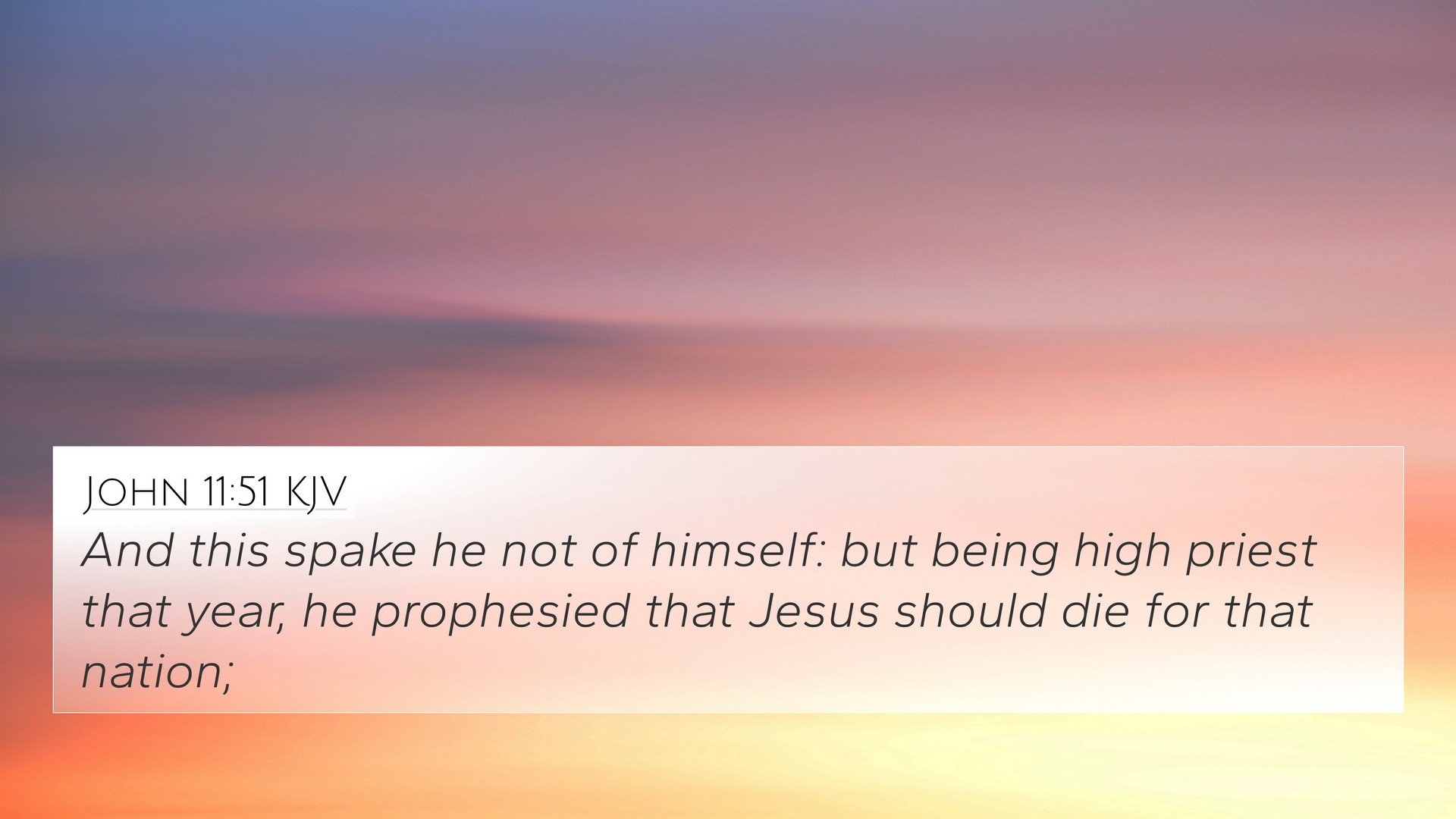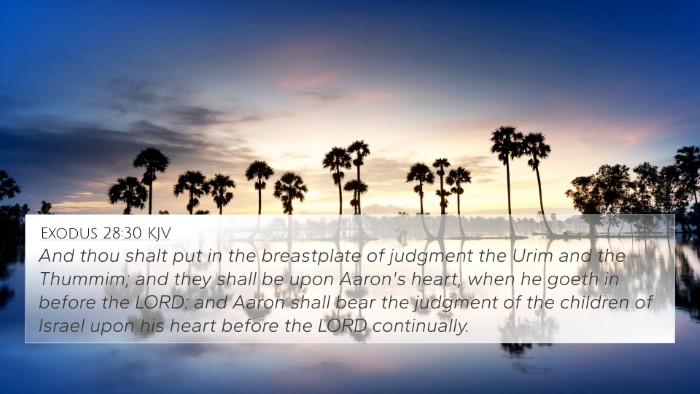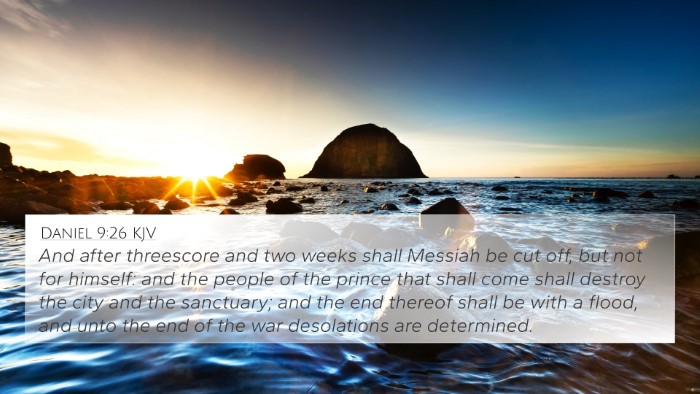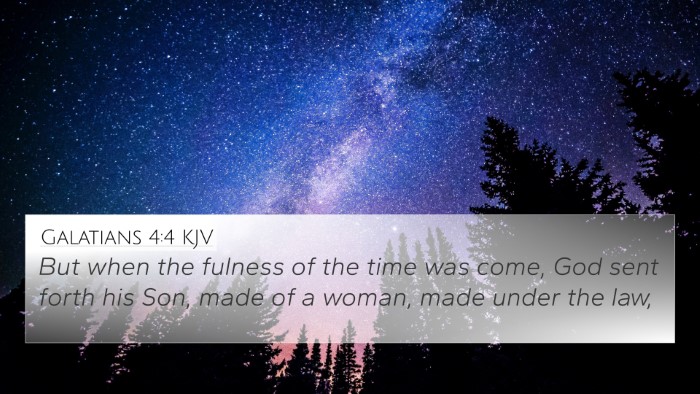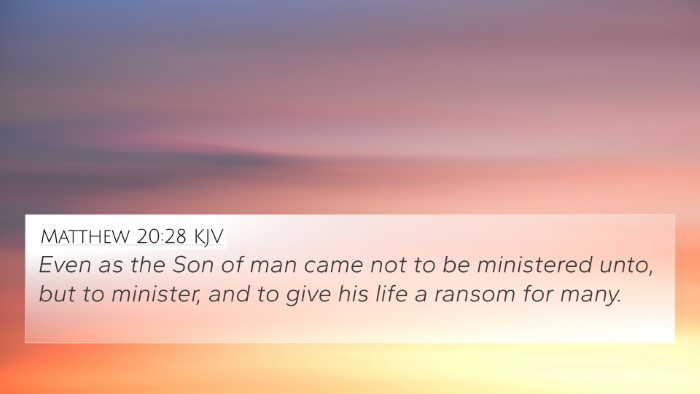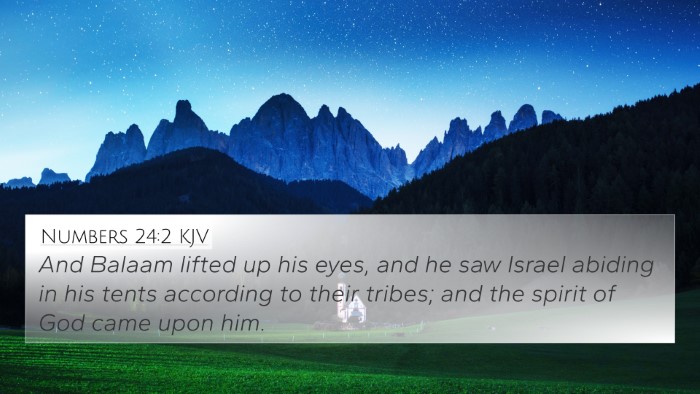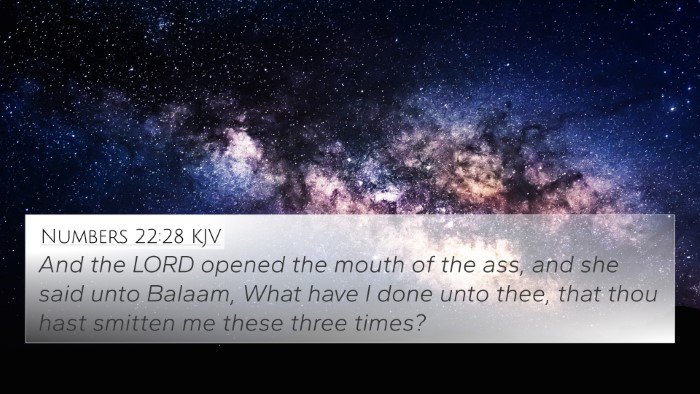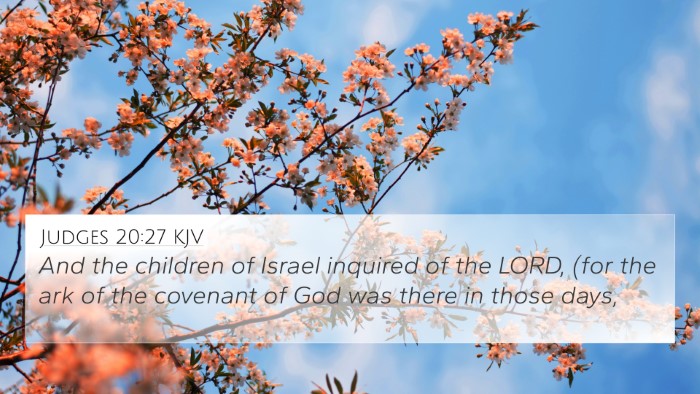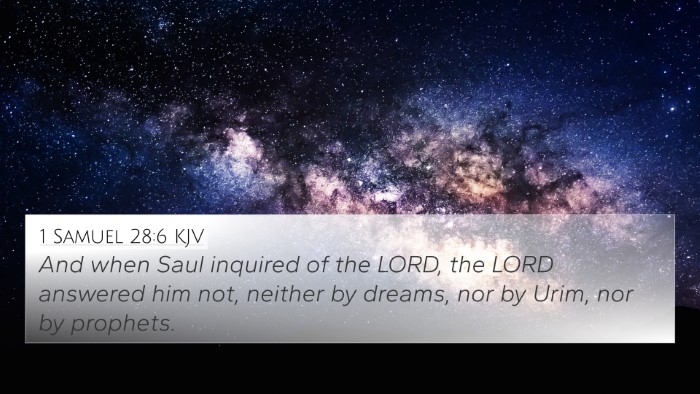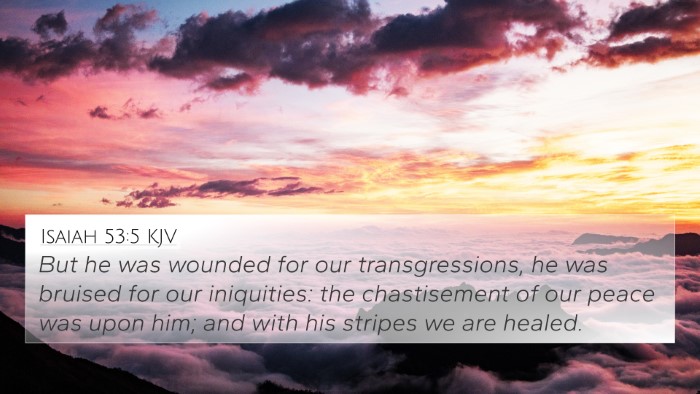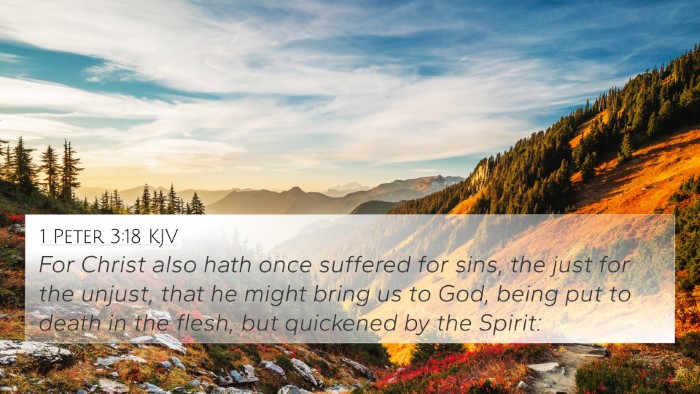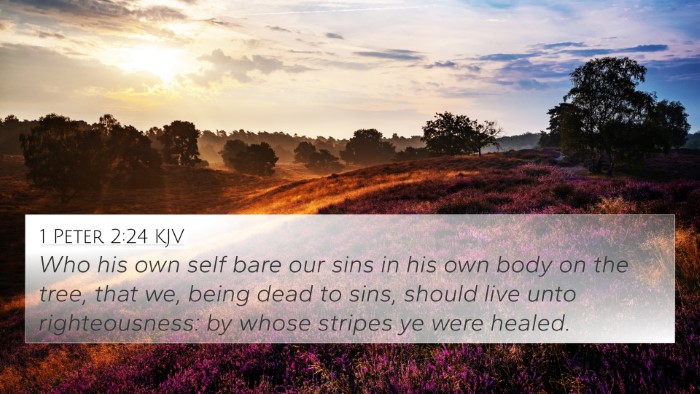Understanding John 11:51
Bible Verse: John 11:51
“And this spake he not of himself; but being high priest that year, he prophesied that Jesus should die for that nation;”
Overview of the Verse
In this verse, specifics about the High Priest's unwitting role in prophesying Jesus' sacrificial death are revealed. The verse highlights the intersection of human action and divine prophecy, emphasizing Israel's leadership and their misunderstandings of God's plans.
Commentary Insights
This analysis integrates insights from various public domain commentaries, including those by Matthew Henry, Albert Barnes, and Adam Clarke, focusing on the theological implications and the relationship of this verse to broader Biblical themes.
Matthew Henry’s Commentary
Henry notes the divine sovereignty at play, showcasing that God's purpose can transcend human intentions. Although Caiaphas speaks as the High Priest, his pronouncement reflects a greater truth about the necessity of Christ's sacrificial death for salvation—not just for the Jewish nation but for all humanity.
Albert Barnes’ Commentary
Barnes emphasizes that the prophetic statement by Caiaphas is significant because it displays God’s plan through an unlikely vessel. The High Priest's assertion, while politically motivated, unwittingly affirms the redemptive mission of Christ, indicating that His death would bring forth life even from the depths of despair faced by the nation.
Adam Clarke’s Commentary
Clarke points to the irony of the situation; a prominent Jewish leader is endorsing an act of sacrifice without comprehending its full implications. He asserts the central message of sacrificial love, accurate in its prophetic insight despite being uttered from a place of misconception and worldly motives.
Thematic Connections and Cross-References
This verse can be connected to several other Biblical references, illustrating the themes of sacrifice, prophecy, and God's redemptive plan. Below are some critical cross-references:
- Isaiah 53:5 - "But he was pierced for our transgressions, he was crushed for our iniquities; the punishment that brought us peace was on him, and by his wounds we are healed."
- John 3:16 - "For God so loved the world that he gave his one and only Son, that whoever believes in him shall not perish but have eternal life."
- Hebrews 9:26 - "He has appeared once for all at the culmination of the ages to do away with sin by the sacrifice of himself."
- Acts 4:12 - "Salvation is found in no one else, for there is no other name under heaven given to mankind by which we must be saved."
- Romans 5:6-8 - "You see, at just the right time, when we were still powerless, Christ died for the ungodly."
- 1 Peter 2:24 - "He himself bore our sins in his body on the cross, so that we might die to sins and live for righteousness..."
- John 10:15 - "Just as the Father knows me and I know the Father—and I lay down my life for the sheep."
Connections Between Bible Verses
The interrelationships between these Scriptures illustrate the continuity of God's plan of redemption through Christ. The act of cross-referencing these Biblical texts enables a deeper understanding of core Christian doctrines, notably the atonement.
Tools for Bible Cross-Referencing
To explore these connections, consider utilizing tools such as a Bible concordance, or a cross-reference Bible study guide. These resources can greatly enhance comprehension and discover how different scriptures interact and complement one another.
Conclusion
John 11:51 serves as a pivotal moment in the understanding of Jesus' death and its implications for humanity. The prophetic utterance, although ironically spoken by the High Priest Caiaphas, reveals God's sovereign plan for salvation. By engaging in cross-referencing Biblical texts, one can uncover a rich tapestry of themes that highlight the cohesive narrative woven throughout Scripture.
